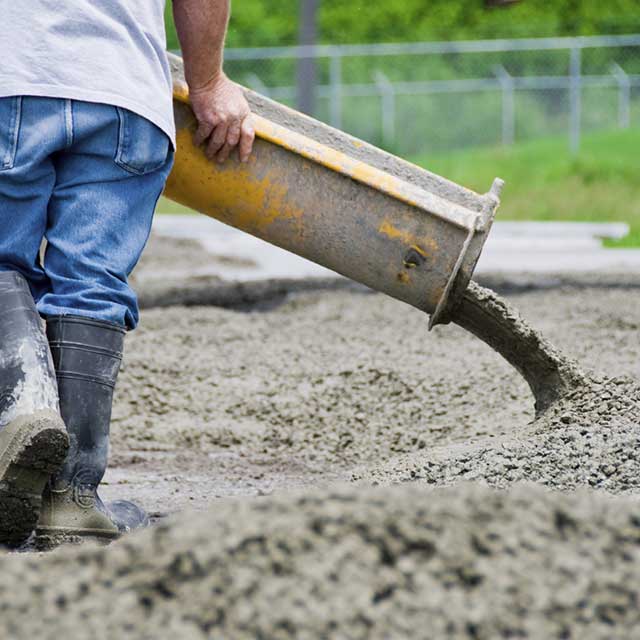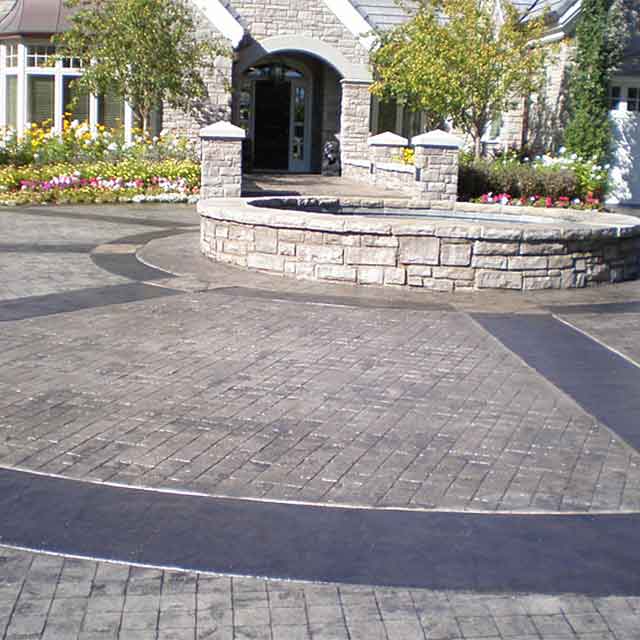How to Maintain your Concrete
- Keep driveway clear of snow and ice if possible
- Remove snow and ice to prevent build-up on concrete
- Do not use a chipping axe to remove built up ice
- Keep downspouts away from driveways and sidewalks
- Avoid using de-icing chemicals during the first winter
- Never use corrosive chemicals on exterior flat work
As a reminder, concrete cracks are considered a normal result of the curing process, and therefore they should not be a source of concern for the homeowner.
FREQUENTLY ASKED QUESTIONS
How long until I can drive on my garage pad or driveway?
We recommend a minimum of three weeks time before you should drive on any new driveway or garage pad. It takes approximately 28 days for concrete to come up to full strength.
My concrete has some cracks. Is there anything I should be concerned about?
As concrete is subject to movement due to ground settlement, freeze/thaw cycles and heat of expansion, cracks occurring in concrete is inevitable. Delcor has taken preventive measures to decrease the chance of cracks occurring. Control joints have been placed in your concrete providing an area for the cracks to occur. An acrylic sealer applied to your concrete work also helps in theprevention of cracking. (which helps the process of curing so the concrete cures and a slow and steady pace, instead of too fast). Steel rebar has been inlayed in your concrete to help prevent cracks that do occur. Even with these preventive measures, cracks may still occur.
Should I water the top of the driveway for a couple of days after it is poured?
No. Once the driveway or garage pad is finished, a low gloss sealer is applied which helps slow the curing time and prevents cracks.
Why is my driveway discolored or blotchy?
This occurs when the concrete dries in different sections due to the exposure of the concrete work, and the amount of direct sun it gets. There is no need to worry about it because the whole driveway will eventually cure to the same color.
What are the advantages of pattern concrete over interlocking brick?
Compared to interlocking brick, Pattern concrete is in the long term less expensive and more durable. Unlike interlocking brick Pattern concrete will not develop moss, or have unsightly weeds & grass growing through the joints. Once sealed the Pattern concrete will not stain and is very simple to clean with only a light broom or a rinse with the hose. As a result your Pattern concrete will uphold its appearance year after year with virtually no maintenance.
What is the maximum size of garage I can build?
To answer this question there are several requirements to consider. Firstly, the maximum coverage of a lot for all buildings cannot exceed 45% of total lot area. Secondly, the maximum site coverage of accessory buildings cannot exceed 784 sq-ft. Thirdly, the accessory buildings cannot exceed the size of the primary building (ie. house).
How often should I re-seal my pattern or exposed aggregate concrete?
Cleaning and sealing pattern and exposed aggregate a concrete should be done on a regular basis just like any other home maintenance. The frequency will depend on how high a traffic area to cars, foot traffic, water, and any chemicals the concrete is exposed to.
My concrete is flaking or peeling off. Is there something wrong?
Flaking off is when the top finished layer of the concrete starts peeling off the concrete slab. Delcor has combined the use of a high quality concrete mixture along with specific finishing techniques to significantly reduce that chance of flaking.
More Services
